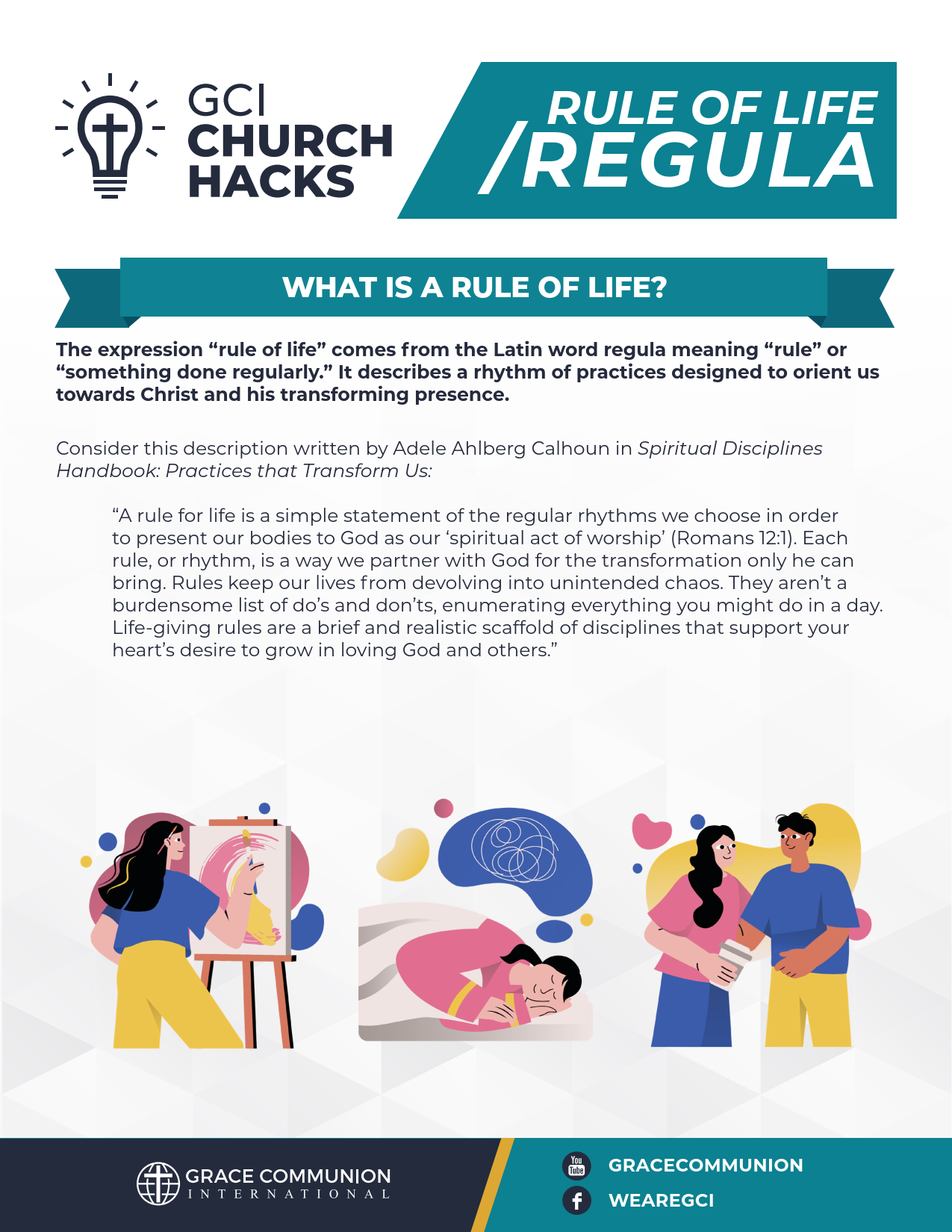Rise Up w/ Chris Tilling
Welcome to the Gospel Reverb podcast. Gospel Reverb is an audio gathering for preachers, teachers, and Bible thrill seekers. Each month, our host, Anthony Mullins, will interview a new guest to gain insights and preaching nuggets mined from select passages of Scripture in that month’s Revised Common Lectionary.
The podcast’s passion is to proclaim and boast in Jesus Christ, the one who reveals the heart of God, Father, Son, and Holy Spirit. And now onto the episode.
Anthony: Hello friends and welcome to the latest episode of Gospel Reverb. Gospel Reverb is a podcast devoted to bringing you insights from Scripture found in the Revised Common Lectionary and sharing commentary from a Christ-centered and Trinitarian view.
I’m your host, Anthony Mullins, and it’s my joy to welcome our guest, Dr. Chris Tilling.
Chris is the Head of Research, Graduate Tutor, Senior Lecturer in New Testament Studies at St Mellitus College in London, England. He is the author of the critically acclaimed book Paul’s Divine Christology and co-author of How God Became Jesus along with Michael Bird. And he wrote a brilliant forward to Jeff McSwain’s latest book, Hidden in Contradiction. Chris has published numerous articles on topics related to Christology, the apostle Paul, justification, the historical Jesus, Karl Barth and more. He’s also on the Advisory Board for the TF Torrance Theological Society.
Chris is married to Anya, and they have two children. In his free time — and I do want to talk to him about this offline sometime — he loves to play golf. Chris, there’s nothing in my life that brings more frustration than trying to hit that little white ball. So again, we’ll talk about that offline.
Welcome to the podcast. And since this is your first time on Gospel Reverb, we’d love to know a bit of your personal story and how you are participating with the Lord these days.
[00:01:54] Chris: Oh, thank you. It’s a real honor to be involved with you guys. I’ve looked at your previous podcasts, and you’ve had quite a few big names on, so it’s obviously an honor to be involved to chat with you guys.
But me, my personal story, goodness — I became a Christian in my late teens and in quite a conservative background, even for American standards, quite conservative. And it was choppy, choppy waters for me, especially the deeper I got into theology, moving from very defensive, through to just engaging every possible question and doubt, through to finally orientating myself on God’s movement to us in Jesus Christ.
So, understanding Christian faith on God’s terms, as it were. So, it wasn’t something I possessed, something I could control, but rather was the joyful movement of God to us in Jesus. And that’s really where I am now. I am so grateful for that more conservative background that has given me a rooting in Scripture, a love of God’s word.
But now I’m orientated more forthrightly to evangelizing everything about my thinking in light of Jesus Christ. And that’s where I am now.
[00:03:09] Anthony: I love how you put it, the joyful movement of God in Jesus. And it is a joyful double movement of grace. Each pericope we’re going to look at this month, Chris, is found in Mark’s Gospel.
You’re a New Testament scholar, so you know way more about this than I do. What insights would you want to share with our listeners about the book of Mark that could enrich their preaching and teaching, especially as it relates to how Mark views the historical Jesus?
[00:03:39] Chris: Okay, I’m going to say something general about the Gospels.
Obviously, it’s applicable to Mark’s Gospel as well, but it’s crucial to get genre right. And I think this is the most important aspect that we need to take home when it comes to preaching and teaching as well. Genre matters, right? We wouldn’t read the comments section on Fox News the same way we might read a cooking book or a tweet. Genre matters.
And Mark, together with the other Synoptic Gospels, approximates to ancient biography. And the crucial thing about ancient biography is that they offer an account of a person. (I’m quoting Richard Burridge.) And that means that to read the Gospels aright, according to their genre, means to be obsessed with the person of Jesus Christ first and foremost, not with a moral code, not with lessons on how to pray better, or how to deal with finances, or whatever else it is, not with a philosophy of life, but with Jesus himself.
That’s the hermeneutical key for reading these texts. We are drawn to the Son of God, to behold the beauty of the Son of God. And this is obviously the case of Matthew, Mark, Luke, and John, because they all look at Jesus in different ways, but that would be my top tip for reading Mark’s Gospels.
[00:05:03] Anthony: That’s a good word. It’s Jesus the Christ, the living Word, who is the infallible word of God, right? So, we look at him. And theology should always lead us to doxology, this praise, this joyful praise of the Lord.
All right, let’s do this. Go ahead, Chris, please.
[00:05:24] Chris: I was just going to say, because I say it’s crucial for preaching. The number of sermons I’ve had to sit through on the Gospels that tend to be moralizing that tend to be guilt inducing, or you need to do this, that, and the other. There’s a place for that.
But if they’re not also, and first and last, pointing us to Jesus and his reality, then it’s like reading a cookery book, as though we’re reading poetry. There’s a genre mix up there.
[00:05:55] Anthony: Yes. I just said to my wife this past week that so many sermons I listen to, first and foremost, ask questions of anthropology instead of Christology. And so, we’re trying to find ourselves in the scripture, but let’s go looking for God and what he’s done in Jesus Christ on our behalf. So amen, brother.
All right. We have five lectionary passages we’re going to be discussing this month. So, let’s get to it.
Mark 2:23-3:6, “Lord of the Sabbath”
Mark 3:20-35, “Family Feud”
Mark 4:26-34, “My, How You’ve Grown!”
Mark 4:35-41, “Don’t You Care?”
Mark 5:21-43, “Rise Up”
Our first pericope of the month is Mark 2:23 through 3:6.
I’ll be reading from the New Revised Standard Version, the Updated Edition. It is the Revised Common Lectionary passage for Proper 4 in Ordinary Time on June 2. And it reads,
One Sabbath he was going through the grain fields, and as they made their way his disciples began to pluck heads of grain. 24 The Pharisees said to him, “Look, why are they doing what is not lawful on the Sabbath?” 25 And he said to them, “Have you never read what David did when he and his companions were hungry and in need of food, 26 how he entered the house of God when Abiathar was high priest and ate the bread of the Presence, which it is not lawful for any but the priests to eat, and he gave some to his companions?” 27 Then he said to them, “The Sabbath was made for humankind and not humankind for the Sabbath, 28 so the Son of Man is lord even of the Sabbath.”
Again, he entered the synagogue, and a man was there who had a withered hand. 2 They were watching him to see whether he would cure him on the Sabbath, so that they might accuse him. 3 And he said to the man who had the withered hand, “Come forward.” 4 Then he said to them, “Is it lawful to do good or to do harm on the Sabbath, to save life or to kill?” But they were silent. 5 He looked around at them with anger; he was grieved at their hardness of heart and said to the man, “Stretch out your hand.” He stretched it out, and his hand was restored. 6 The Pharisees went out and immediately conspired with the Herodians against him, how to destroy him.
Chris, what are the implications of Jesus’ statement, the Sabbath was made for humankind and not humankind for the Sabbath, because he is the Lord of the Sabbath?
[00:08:33] Chris: Yeah, great question. That really does sum up the entire pericope. There’s a hermeneutic here: how to read and understand the law. What is it to live under Torah? What is it to be faithful to God’s commandments?
And ultimately, there’s a battle about what that entails, what that means. And Jesus is making it clear that the law was always there. The Torah was always there for human flourishing. It was there in order to facilitate healthy lives and balance and good relationships.
And the danger is that the law becomes something that bludgeons, that becomes a blunt tool that sees everything as a nail and so you need a hammer. So that the only thing that is required is unconditional, unthinking obedience to the letter. And Jesus responds to this by saying, actually, that’s not quite how this works.
Is it better to give life or to kill? Depending on the circumstances. There’s a hermeneutical battle here, in other words, about what it is to be obedient, which is why he goes to David. Have you never read what David did? Because according to the letter of the law, David and what his companions did, was disobedient. It was unfaithful to Torah. But actually, in the grand scheme of things, in light of the particularities, it was just the right thing to do. So, it’s clearly a hermeneutic going on here.
But the key, as always with these things and as we’ve already discussed about the Son of Man being Lord of the Sabbath, okay, there’s debate. Does this mean all humans, or does it mean Jesus? That’s probably a false “either or,” because the key to the hermeneutical understanding going on here, I think is, again, the reality of Jesus Christ. And then we can negotiate these choppy waters.
So, in other words this, the implications of this are huge. The implications are all about how do we read the Bible, as a whole, in light of Jesus Christ and in view of human flourishing?
[00:11:00] Anthony: Speaking of human flourishing, I was struck again as I was just reading this passage aloud, how frequently there’s a pattern in Scripture where God, of course, could do a work, a miracle without our participation, but he often invites us into it.
He said to the man with the withered hand, come forward, stretch out your hand. We see in other parts of Scripture, pick up your mats or the battle will be won. You’ll see the victory of the Lord, but go down and face it, even though you’re not going to lift the sword, kind of thing. Anything you’d want to say about our participation and what the Lord is up to?
[00:11:39] Chris: Anything I’d want to say about our participation? There seems to be a very real participation here, right? In other words, our agency, which is very real and honored, is given that Christological frame in this particular text. You stretch out, to the withered hand. Come forward. In other words, that responsiveness — in any theology, any dogmatic theology, that claims to be Barthian and doesn’t have a rich account of human responsivity is mistaken.
And Bart was very clear on this as well. We need to have a good account of human agency and what we do. But the ultimate bracketing of that human agency — no, it’s not its bracketing. Its constitution is Jesus Christ. Our real human agency is incorporated into the liveliness of Jesus Christ himself in a way that doesn’t obliterate that agency, but actually gives it its texture.
It’s slightly theoretical perhaps, but that’s where I’m going with your question.
[00:12:52] Anthony: Anything else you would like to bring forth out of this passage?
[00:12:56] Chris: There’s always a danger in reading this passage when the “not lawful,” thinking that Jesus is opposed to Jews and Jewish legalism and that kind of rhetoric, which is a huge mistake.
Jesus is picking up on very biblical principles for understanding the Torah. The Pharisees and their particular legalistic take, if that’s the right way of describing it, isn’t representative of all Judaism. As though Christians, we’ve left legalism behind, but the Jews haven’t. That would be a misreading of this passage, profoundly misleading.
But perhaps it’s also just worthwhile meditating on the fact that Jesus has caused so much consternation that he causes the Pharisees and the Herodians to conspire against him. This is the last verse. They are chalk and cheese. [“Chalk and cheese” is a British idiom meaning two people or things that are completely different from each other.] The Herodians (they’re not party as such, but they’re a bunch of people who are loyal to the Herodian dynasty) and the Pharisees are not natural friends.
So, when we get legalistic, when we put principles above people and above Jesus Christ, it can cause us to really put things out of kilter. And do the craziest things and that’s why the Pharisees here are even conspiring with the Herodians.
[00:14:20] Anthony: That’s a good word.
All right, let’s pivot to the next passage of the month.
It’s Mark 3:20-35. It is a Revised Common Lectionary passage for Proper 5 in Ordinary Time, which is June 9. Chris, we’d be delighted if you’d read it for us, please.
[00:14:34] Chris: Great.
Mark 3:20-35. This is for an Ordinary Time, June 9.
Then he went home, and the crowd came together again, so that they could not even eat. 21 When his family heard it, they went out to restrain him, for people were saying, “He has gone out of his mind.” 22 And the scribes who came down from Jerusalem said, “He has Beelzebul, and by the ruler of the demons he casts out demons.” 23 And he called them to him and spoke to them in parables, “How can Satan cast out Satan? 24 If a kingdom is divided against itself, that kingdom cannot stand. 25 And if a house is divided against itself, that house will not be able to stand. 26 And if Satan has risen up against himself and is divided, he cannot stand, but his end has come. 27 But no one can enter a strong man’s house and plunder his property without first tying up the strong man; then indeed the house can be plundered. 28 “Truly I tell you, people will be forgiven for their sins and whatever blasphemies they utter, 29 but whoever blasphemes against the Holy Spirit can never have forgiveness but is guilty of an eternal sin”— 30 for they had said, “He has an unclean spirit.” Then his mother and his brothers came, and standing outside they sent to him and called him. 32 A crowd was sitting around him, and they said to him, “Your mother and your brothers are outside asking for you.” 33 And he replied, “Who are my mother and my brothers?” 34 And looking at those who sat around him, he said, “Here are my mother and my brothers! 35 Whoever does the will of God is my brother and sister and mother.”
[00:16:13] Anthony: My wife and I occasionally watch British TV, and we always comment about how anything a Brit says, sounds fantastic. Well, done, sir. Well, done.
[00:16:27] Chris: That’s the one card I’ve got going for me, I think, that one.
[00:16:30] Anthony: Tell us about the God revealed in Jesus in this pericope.
[00:16:34] Chris: Oh, wow. That is a big question. I suppose one of the things I’d want to talk about is how Jesus casts relationship with him, and therefore relationship with God, in familial terms, with familial metaphors.
It actually came as some shock to me to realize that the New Testament doesn’t tend to speak of Christ followers (it does, but not as often as you’d expect) as believers. Rather more often, with familial terms as brothers and sisters. And this is key in the teaching of Jesus. Richard Bauckham, who’s a New Testament scholar, he says of the Gospels, with every major area, there comes a new revelation of the name of God.
So, you had Adonai; you had the divine name, the Tetragrammaton; and with Jesus, you have “Father” as the divine name being revealed, which was a fascinating way of putting it. But one way or another, this is key to the understanding of Jesus with those who are around him. You are my brothers.
We’re called into a family; we’re called into a relationship with a Father who loves us even more than the best human fathers can love us. So that would be the first place I would go for understanding, but much more could be said, of course.
[00:18:04] Anthony: Wow. I’m just thinking about what you just said there. We so often want to make it our relationship with God. We talk in terms of judgment and not always as family. So that was brilliant. Whoever does the will of God is my, here we go, familial brother, sister and mother.
So sometimes we’re reductionist when we talk about the will of God. What’s the will of God for this or that? But just big picture: what is the will of the father in the context of this text?
[00:18:43] Chris: Yeah, I’ve been thinking about this question and realized it’s quite difficult to answer. Mark is famous for not giving us much content in terms of the actual teaching. There’s a lot of talk about what Jesus taught without going into the content of that teaching.
Matthew and Luke do that much more. Mark’s Gospel, which is often depicted as a lion with images, is fast-paced. It runs through texts with a lot of stories with lots of “immediately’s.” “This now happened.” “Immediately that” and “immediately this,” without stopping to pause and give us some more content.
So, there’s a sense in which — there isn’t too much to go on here, but what can we say? That the immediate pericope seems to link doing the will of God with works of power. And this isn’t something that is necessarily comfortable to hear but there Jesus is casting out demons. And it’s very much caught up in the debate about that.
And Jesus is not casting out demons by Beelzebub, but by the Spirit of God. And of course, linked to this as well, is blasphemy against the Holy Spirit. And therefore, the will of God must be something about honoring the Holy Spirit. But can I just say something about that, actually? Because this is a what has been known as a text of terror for some.
[00:20:18] Anthony: Yes.
[00:20:19] Chris: And for those, especially those who struggle with religious scrupulosity and obsessive compulsive disorders, this is a verse that many have given up faith because of this. Whoever blasphemes against the Holy Spirit can never have forgiveness but is guilty of an eternal sin. Oh, have I committed that eternal sin?
And lots of introspection and pain and psychological trauma is based on this. Let me just say something about the word here. Aiónios is the Greek word behind eternal there. And I think it’s better to translate that not as eternal. Ethos would have been a better word to have in that particular passage. Maybe it’s until the age or for an age, is guilty of sin until or for the age, by the way.
So, I think that’s a better way of understanding that particular passage. And for those who worry that they’ve committed the blasphemy against the Holy Spirit, you almost certainly haven’t, because then you wouldn’t be worried about it.
It’s about the continued resistance that we put up against the Holy Spirit, which ultimately, I think God overcomes as well because God will be all in all. But there’s much more to talk about there. I just wanted to flag that particular passage.
[00:21:37] Anthony: I’m glad you did. I thought about asking a question about it, but it seems to me when people come to this pericope, they get hung up there and they don’t see anything else within the text.
But even though it’s not in our passage here, in our focus, I think of our Lord on the cross. God was in Christ reconciling the world to himself. The Spirit was there. And certainly, we were all blaspheming in some form or fashion against God. And Jesus’ words were, “Father, forgive them,” revealing the heart of God, not shielding us from an angry God, but revealing God’s heart as it’s always been.
Thank God for it. I appreciate your words.
Let’s transition to our next passage. It’s Mark 4:26-34. It is a Revised Common Lectionary passage for Proper 6 in Ordinary Time, which is June 16.
He also said, “The kingdom of God is as if someone would scatter seed on the ground 27 and would sleep and rise night and day, and the seed would sprout and grow, he does not know how. 28 The earth produces of itself first the stalk, then the head, then the full grain in the head. 29 But when the grain is ripe, at once he goes in with his sickle because the harvest has come.” He also said, “With what can we compare the kingdom of God, or what parable will we use for it? 31 It is like a mustard seed, which, when sown upon the ground, is the smallest of all the seeds on earth, 32 yet when it is sown it grows up and becomes the greatest of all shrubs and puts forth large branches, so that the birds of the air can make nests in its shade.” With many such parables he spoke the word to them as they were able to hear it; 34 he did not speak to them except in parables, but he explained everything in private to his disciples.
So, Jesus here describes the kingdom of God as growing, yet the workers don’t know how it happens in verse 27. And yet, Chris, I sometimes, or frequently, hear Bible teachers giving a five step plan on how we make the kingdom of God grow.
So, am I missing something here? Help us understand.
[00:23:50] Chris: No, you’re not missing a thing. I think there’s a temptation to turn the kingdom of God into a human project. And this is to fundamentally misunderstand the nature of discipleship, which belongs to God. It’s not ours to control, as I said at the very start.
That was one of the key insights I remember battling my way through back then — what we’d now called deconstruction. It wasn’t trendy back then. But it was certainly a key moment for me.
There’s some wisdom to be gained from having, let’s say, five steps from not being a sluggard. We could get that from Proverbs. Understood.
But when it comes to the activity of God and God’s own reign, which effectively is what God’s kingdom means, this is all about the gracious activity of God, rather than something we master and control. We remain disciples in this whole process, not masters.
So, I don’t think you’re missing a thing. I think you’ve hit on something crucial to the life of faith, which frees us from taking ourselves so seriously. We don’t need to, you and me, Anthony — we’re not the middle of any of this. We’re not the center. Jesus Christ is the center. That frees us to enjoy the life of faith in discipleship without doubts, without stupidity, without whole swathe of misunderstandings and so on, intact, because it’s not about us.
It’s about Jesus.
[00:25:36] Anthony: And it’s so good! And some people receive that as not good news because they misunderstand agency, and they want to be able to control. But it is good news that we’re not in the center. As Barth would say, genuine freedom is realizing Jesus Christ is not a freedom from God, but a freedom for God, that we get to actively participate, even if we don’t know how it’s happening.
And I think it was Eugene Peterson that said this in terms of discipleship, that it’s focusing more and more on Christ’s righteousness and less on our own. And boy, we get that backwards, don’t we, Chris, so often?
[00:26:19] Chris: Absolutely. Yeah. Yeah. A good understanding of human agency, I think, is one of the crying needs for many in the church.
[00:26:28] Anthony: While we’re on the topic of things that puzzle me — and that’s not difficult. I’m not the sharpest chisel in the shed. So, let’s talk about the parables of Jesus. My life left eye begins to twitch when I hear people say the parables are simple stories or this parable clearly means whatever, fill in the blank.
So, I ask you, New Testament scholar, am I just a contrarian or is there more profundity there? Is it something in between?
[00:26:59] Chris: Oh, goodness. You’re not the only one that the parables puzzle. New Testament scholars debate endlessly questions relating to how they’re best understood, how they’re best classified, what genre they better approximate, whether there’s one meaning or whether there’s multiple meanings, what the purpose of these parables are.
Is it to disclose? Is it actually to cover and to hide? In other words, the confusion is one shared by New Testament scholars. Yeah, I mean, the only thing I could think that we could learn from New Testament scholarship in that regard is to realize that we have now recognized that we can’t speak in simplistic terms about the parables.
We can’t speak in simplistic terms about their genre, their historical precedence. Certainly, we can’t say that a parable has a single point. Rather, scholars these days tend to say that the parables are polyvalent. They have lots of ways of being understood. And it’s almost as if, to come back to the human agency thing here, Jesus is, in using parables, calling for our active participation in pondering, in thinking, in puzzling.
So, you said that these topics puzzle me. I think that’s the point of the parables. They’re made to evoke our wonder and response. Isn’t that interesting? Jesus isn’t there simply giving us a list of things to believe, right? Now that’s it. Now you’ve job done, like a good lecturer.
He’s causing, he’s evoking our participation in the process, in wondering, and in pondering.
[00:28:55] Anthony: Eugene Peterson has a brilliant book called Tell It Slant, and he’s quoting a poem from Emily Dickinson when he says this. But that’s what fiction can do. This is what the parables can do. It comes at you slant, not blunt force.
Like you said earlier, it evokes our imagination. And this is why I think there’s always more profundity than we can apprehend. We don’t ever comprehend. We just get glimpses.
Let me ask you this, Chris, as a follow up. If you were preaching this particular text, what would be your focus beyond anything you’ve already said?
[00:29:40] Chris: I don’t know if this is something I would preach on, but it’s certainly something I’d want to talk about now. I’m certainly — if I’m going to preach on this, it’s going to be, it’s got to be focused on God as I’ve said so many times, and I’m going to say till I’m blue in the face. It’s about God revealing himself in Jesus Christ and in his movement to us.
And God is creating this growth. God wants to do this. He’s for us. He’s with us in Jesus Christ. That’s certainly where I want to go for preaching. But for this particular discussion, I’d want to just meditate a little bit longer on the issue of parables. Because, if you were to flip open a dictionary of the New Testament or turn to a New Testament scholar who’s written on the parables, then very often you get questions of historicity — that is to what extent do the parables in Mark give us a window onto the historical Jesus or some such.
Can I just say something about this? Just because here, it seems to me, is where we need some of our metaphysics evangelized. There is no historical Jesus just existing in the past; we’re now in the present, separated from that past. If that’s the case, then Jesus isn’t who we think he is and confess him to be and worship him to be.
Rather, we exist in the time of Jesus Christ. We are crucified with Christ. We will be raised with Christ (to pick up on language of the apostle Paul and other New Testament passages use.) There is no neat history apart from us. We are incorporated into Jesus’ story and history.
So, the whole idea that we can get to a historical Jesus is to look with (I think it was John Webster put it) with methodological infidelity. I think was his turn of phrase. But more importantly as well, the historical Jesus can never be the real Jesus.
And I’m drawing distinctions here that a German scholar, Michael Wolter, has used. Historical studies can only give us an approximation based on probabilities and such, and that’s never going to be the same as the fullness of a person, a historical person. If someone, in 200 years, looks back at your life, Anthony, and tries to look at the trace you, of your presence online, interviews, descendants, looks at things that you’ve written online and things that your family said about you, they’ll come up with an approximation, but it’s not going to be the real Anthony.
And the thing about Mark’s Gospel is that it points us, not to a historical Jesus, but to the real Jesus. And I think these are really important distinctions to bear in mind in light of New Testament scholars. Because many will go, what are parables then? They’ll pick up a New Testament scholarly text, and they’ll get profoundly disappointed.
Don’t be. For the reasons I’ve mentioned, ultimately, it’s about pointing us to the real Jesus.
[00:32:59] Anthony: Yeah. I appreciate what you said there because I think that can be another lie about separation from God. Separation from the historical Jesus. Thank God that when one died, all died.
All right, Chris, our next passage is Mark 4:35-41. It is a Revised Common Lectionary passage for Proper 7 in Ordinary Time, June 23. Would you read it for us, please?
[00:33:30] Chris: Certainly.
On that day, when evening had come, he said to them, “Let us go across to the other side.” 36 And leaving the crowd behind, they took him with them in the boat, just as he was. Other boats were with him. 37 A great windstorm arose, and the waves beat into the boat, so that the boat was already being swamped. 38 But he was in the stern, asleep on the cushion, and they woke him up and said to him, “Teacher, do you not care that we are perishing?” 39 And waking up, he rebuked the wind and said to the sea, “Be silent! Be still!” Then the wind ceased, and there was a dead calm. 40 He said to them, “Why are you afraid? Have you still no faith?” 41 And they were filled with great fear and said to one another, “Who then is this, that even the wind and the sea obey him?”
[00:34:22] Anthony: That’s the question, isn’t it? Who is this? So, from your perspective, was Jesus knowingly sending his friends, with himself, into a raging storm?
And if that’s the case, what are the implications not only for them, but for us, if anything?
[00:34:39] Chris: Yeah. The text doesn’t specify, does it, whether Jesus was sending them there knowingly. Of course, that evokes lots of questions about the omniscience of Jesus in his being human, but also God, fully God.
These are questions that have occupied theologians for many years. In fact, I’m just reading a book by Austin Stevenson for an OnScript podcast next week. The book is called The Consciousness of the Historical Jesus, and he’s got a few chapters thinking about: how do we speak of the omniscience of Jesus in light of particularly passages in Mark where Jesus seems to admit that he doesn’t know everything?
That’s a bit of an aside. But here’s something we can say: that God does send us into difficult times. I think of the baptism of Jesus, and the Holy Spirit, upon descending on Jesus, immediately sends him not into a nice place, but into the desert. So sometimes the Holy Spirit isn’t being friendly, in whatever way we might understand the word friendly. So, it wouldn’t be beyond the pale to understand Jesus putting them through this knowingly, with all of those theological footnotes in place.
But I do think that we are now encountering something which is essential to the fabric of faith. That question: don’t you care? Being a disciple of Jesus isn’t being a Buddhist and just having perfect peace about everything.
It’s about wrestling with psychological strain and questioning: how can this thing happen? Most of the Psalms or many of the psalms, they’re psalms of lament. The psalmist might turn around and say, look, we’ve done everything right, God, but you have fallen asleep. Wake up.
It’s evoking precisely these kinds of psalms where the faithful in Israel are perplexed that their enemies are taking over. So, this is the question of faith, not the question of atheism.
And just yesterday or the day before, I came across this Facebook post where someone was saying, the most devastating critique of Christianity is the presence of evil. And someone clever responded and said in the comments — I don’t know why I look at Facebook comments; it’s not very good for me — but someone clever responded in the comments, “How can an atheist say anything about evil because you don’t have a standard of which to talk about evil because you’ve given up faith in God?” And they turned around and they said, “Ah, this is an internal critique of Christianity.”
And I thought, okay, I follow the reasoning, but it’s actually a critique of faith, right? The question: don’t you care? That’s what believers, it’s what disciples ask, not an atheist.
And so, Jesus responds to us then in that light, as those who are his brothers and sisters and mothers. Why are you afraid? Have you still no faith? In other words, there isn’t this you’re on the verge of being an outsider now kind of condemnation. Why are you afraid? Have you still no faith? This is the kind of questioning that Jesus puts to his brothers and sisters and mothers, which then causes us to be filled with great fear and ask, who is this Jesus?
The questions, in other words, continue right off the back of that.
[00:38:18] Anthony: You mentioned the Psalms and I recently read Walter Brueggemann’s book, The Spirituality of the Psalms, and he helped me see a rhythm in scripture, specifically the Psalms. But you see it in the Sermon of the Mount and the passages where he talks about orientation, disorientation, and reorientation.
We come to Jesus with a certain orientation, what we think we believe about him. And then we’ve got to wrestle with that. Like you said, like there’s a windstorm and he’s asleep. What do we do with this? And then he says, be silent, be still. He orients us to the fact that he is God, and he is Lord of the weather and all that is. And that’s why we have to wrestle through this to get to the space where we actually see him and who he is.
And so, I’m going to invite you, Chris, before we depart from this pericope to get personal with people who may be shaking their fists at the sky saying, don’t you care? Because of whatever they’re facing in this life, the evil that they’ve encountered.
What would you say to them? So instead of giving a lecture, maybe what I’m asking you to do is preach and share a word of consolation to those who are wrestling right now.
[00:39:42] Chris: Oh, yeah. I’ve been there, Anthony. I’ve been shaking my fist at God and utterly perplexed with what is going on.
And all I would say is, this is the life of faith. This is what it is to be a disciple of Jesus Christ. We’re not inoculated from these kinds of questions, from these complaints. But what we can do is when the storm starts to subside, we can remember that we stand on a rock and that rock is the God revealed in Jesus Christ. And the God revealed in Jesus Christ is our eternal Father. Jesus says, how much more will your Father in heaven give good gifts to those who ask him?
Think comparing that with the love of the perfect earthly father. This is what Jesus is pointing us to. God loves us so dearly, much more, but analogous to the way in which the best human father loves their children.
I’m a father and I’ve got to say, I don’t know a love like that. I’ve often thought, would I give up my life for my wife? And I’d like to think I would. If I had to step in front of a bus to save my wife, I’d like to think I would. But here’s the thing. If either of my two children were in danger and I needed to give up my life for them, I would do it in a heartbeat, a thousand times out of a thousand instinctively.
That’s the kind of love that a father has, a good father has for their children. And Jesus is saying, this is the way in which God loves us. So, let’s question, let’s rage against the silence. Let’s question, because this is the kind of story that gives us permission to do just that. Evoking those psalms of lament of God’s silence, of God falling asleep.
But remember, that when the waves subside, we can ask in astonishment, who then is this Father, this incredible love, an eternal love from before all eternity?
[00:41:52] Anthony: Preach, preacher. That was a good sermon. Thank you.
Our final pericope of the month is Mark 5, 21:43. It is a Revised Common Lectionary passage for Proper 7 in Ordinary Time, June 30.
When Jesus had crossed again in the boat to the other side, a great crowd gathered around him, and he was by the sea. 22 Then one of the leaders of the synagogue, named Jairus, came and, when he saw him, fell at his feet 23 and pleaded with him repeatedly, “My little daughter is at the point of death. Come and lay your hands on her, so that she may be made well and live.” 24 So he went with him. And a large crowd followed him and pressed in on him. 25 Now there was a woman who had been suffering from a flow of blood for twelve years. 26 She had endured much under many physicians and had spent all that she had, and she was no better but rather grew worse. 27 She had heard about Jesus and came up behind him in the crowd and touched his cloak, 28 for she said, “If I but touch his cloak, I will be made well.” 29 Immediately her flow of blood stopped, and she felt in her body that she was healed of her disease. 30 Immediately aware that power had gone forth from him, Jesus turned about in the crowd and said, “Who touched my cloak?” 31 And his disciples said to him, “You see the crowd pressing in on you; how can you say, ‘Who touched me?’” 32 He looked all around to see who had done it. 33 But the woman, knowing what had happened to her, came in fear and trembling, fell down before him, and told him the whole truth. 34 He said to her, “Daughter, your faith has made you well; go in peace, and be healed of your disease.” 35 While he was still speaking, some people came from the synagogue leader’s house to say, “Your daughter is dead. Why trouble the teacher any further?” 36 But overhearing what they said, Jesus said to the synagogue leader, “Do not be afraid; only believe.” 37 He allowed no one to follow him except Peter, James, and John, the brother of James. 38 When they came to the synagogue leader’s house, he saw a commotion, people weeping and wailing loudly. 39 When he had entered, he said to them, “Why do you make a commotion and weep? The child is not dead but sleeping.” 40 And they laughed at him. Then he put them all outside and took the child’s father and mother and those who were with him and went in where the child was. 41 Taking her by the hand, he said to her, “Talitha koum,” which means, “Little girl, get up!” 42 And immediately the girl stood up and began to walk about (she was twelve years of age). At this they were overcome with amazement. 43 He strictly ordered them that no one should know this and told them to give her something to eat.
Jesus proclaimed, “Talitha koum.” Girl, rise up.
This pericope tells us of a dead girl coming back to life. And a living woman who was dead to her community before a life-giving encounter with the Lord Jesus Christ. As best you can, Chris, proclaim the astounding gospel declaration contained in these stories.
[00:44:56] Chris: Yeah, the gospel isn’t about sin management. You notice how as you put it, it’s about death to life. Where there’s death, where there’s separation Jesus comes along and brings life and incorporation.
And where the Gospels go, some have described them as extended prefaces to the crucifixion and resurrection narratives, which is slightly exaggerating, but there’s truth to that. Ultimately, Jesus is going to enter death and from within death, defeat death because he is life. He is the opposite of death.
And this is ultimately the gospel. It isn’t just about pulling up our moral bootstraps and making sure we’ve prayed the sinner’s prayer. It’s participation in the death and, therefore, in the resurrection of Jesus Christ, as you put it. We believe that one died, therefore all died. This is the gospel as best as I know how to describe it. God in love sent Jesus Christ to assume our enslaved Adamic nature. It’s terminated on the cross, and then God raises Jesus from the dead by the power of the Holy Spirit. And the gospel is this: that story, that Trinitarian story, is our story. It’s your story, Anthony. It’s my story. It’s the story of every human.
We die in Christ. We believe that one died, therefore all died, and therefore we believe that we will be incorporated also into his resurrection. Because what these stories tell us is that Jesus is in the business of bringing life where there is death. And that’s the hope of the world.
[00:46:45] Anthony: Yes and amen. And we see these stories of the woman who had been bleeding for 12 years, the little girl, and these were resuscitations, right? Eventually that little girl died. Eventually the woman who had been bleeding died. Jesus died. I think of our mutual friend, Jeff McSwain, who I heard say once that we have to be reminded that God, the Father, did not save Jesus from death; he saved him through death.
And that is our story, but on the other side is resurrection.
Hallelujah. Praise God. As we just celebrated Resurrection Sunday. And he has, not only the first word, but the final word. And that, my friends, is good news. And I want to remind you to take heart: you do not know what is coming, but we know who is coming. And that makes all the difference.
Chris, I want to thank you for being with me today. It’s such a pleasure to hear you herald the gospel. It’s made my heart leap with joy and I’m so, so grateful for the way that God has you participating in his ministry. Keep it up, my brother.
And I think I heard you mention a podcast that you host if people want to listen further to your great British accent and your takes on theology.
How do they find your podcast? Where do they go?
[00:48:06] Chris: Yeah, it’s OnScript. Just type in “on script” and you will find it. I’m one of the cohosts, and we simply interview authors about their recently published works, among other things. We’ve done a few other things as well, but that’s largely what we do.
[00:48:25] Anthony: Fantastic. I want to thank our podcast team, Reuel Enerio, Elizabeth Mullins, and David McKinnon for their excellent work. It’s behind the scenes. You don’t actually often see it. But it’s what makes this podcast go, and I’m so grateful.
Chris, it is our tradition here on Gospel Reverb to end with prayer. And I’d be thankful if you would give thanks and praise and offer a prayer on behalf of all of our listeners.
[00:48:52] Chris: I certainly will. Yeah. And just remember, folks, Mark’s Gospel is there to point us to Jesus. And this is who he is this incredible, glorious Son of God who brings life where there is death.
And Father, we thank you for the hope that we have in Jesus Christ. Thank you for the word of love, of life, of power that you have spoken in him. And Father, we pray that we would be faithful children, brothers and sisters and mothers of the Lord Jesus Christ, remembering that you love us as the greatest and the most glorious Father.
May we bring life in Christ where there is death. May we be agents of incorporation, of goodness, of wisdom. May we not be like the Pharisees at the beginning and conspiring with Herodians. May we be wise, skillful readers of Scripture, always pointing to you, risen Lord. And in your triune name, we give thanks and praise. Amen.
Thank you for being a guest of Gospel Reverb. If you like what you heard, give us a high rating and review us on iTunes, Spotify, or wherever you get your podcast content. Share this episode with a friend. It really does help us get the word out as we are just getting started. Join us next month for a new show and insights from the RCL. Until then, peace be with you!



 Glen A Weber – Regional Support Team, Central Region
Glen A Weber – Regional Support Team, Central Region
 By Elizabeth Mullins, Publications Coordinator
By Elizabeth Mullins, Publications Coordinator
 By Anthony Mullins, Church Planter, Durham, NC
By Anthony Mullins, Church Planter, Durham, NC

 By Dishon Mills, Pastor Charlotte, NC
By Dishon Mills, Pastor Charlotte, NC

 “I want to encourage us to remember that our teams are more than just production lines, groups of people that we complete checklists alongside … We serve on teams because, in Christ, we are many who are made one — each uniquely, fearfully, and wonderfully made, brought together to form the one body of Christ and in him. We belong not only to him, but to one another. We come together in cooperation to be his hands and feet, to participate in his present ministry, in our midst.” — Cara Garrity
“I want to encourage us to remember that our teams are more than just production lines, groups of people that we complete checklists alongside … We serve on teams because, in Christ, we are many who are made one — each uniquely, fearfully, and wonderfully made, brought together to form the one body of Christ and in him. We belong not only to him, but to one another. We come together in cooperation to be his hands and feet, to participate in his present ministry, in our midst.” — Cara Garrity




